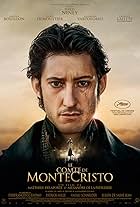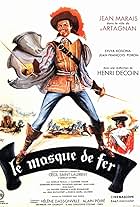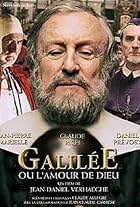Advanced search
- TITLES
- NAMES
- COLLABORATIONS
Search filters
Enter full date
to
or just enter yyyy, or yyyy-mm below
to
to
to
Exclude
Only includes titles with the selected topics
to
In minutes
to
1-4 of 4
- After escaping from an island prison where he spent 14 years for being wrongly accused of state treason, Edmond Dantès returns as the Count of Monte Cristo to exact revenge on the men who betrayed him.
- Nicolas le Floch, doubly a comissaire with the King's Police and the Marquis de Ranreuil, solves crimes during the reign of Louis XV.
- The story of the Three Musketeers, D'Artagnan, and the imprisonment in an iron mask of the identical twin of the King of France, Louis XIV.
- The Dialogues, Galileo's masterpiece, were published in 1632 with the approval of Catholic censors. It was applauded by intellectuals but nevertheless aroused the Church's ire. Despite his continued insistence that his work in the area was purely theoretical, despite his strict following of the church protocol for publication of works (which required prior examination by church censors and subsequent permission), and despite his close friendship with the Pope (who presided throughout the ordeal), Galileo was summoned to trial before the Roman Inquisition in 1633. During this interrogation Galileo stated that he did not defend the Copernican theory. A scientific and theologic fight began between Galileo and his three prosecutors. Galileo had the bigest difficulties to hide he deeply considered the Copernic model could be the good one. The church, leaded by dogma, went on arguing about his convictions. The trial lasted several monthes. The Inquisition held the final hearing on Galileo, who was then 69 years old and pleaded for mercy, pointing to his "regrettable state of physical unwellness". Threatening him with torture, imprisonment, and death on the stake, the show trial forced Galileo to "abjure, curse and detest" his work and to promise to denounce others who held his prior viewpoint. Galileo was sentenced to prison, but because of his advanced age and Church politics the sentence was commuted to house arrest at his villas in Arcetri and Florence. Leaving the trial, Galileo, old and exhausted, whispered the famous sentence: "Eppur si muove" (But it does move!).



